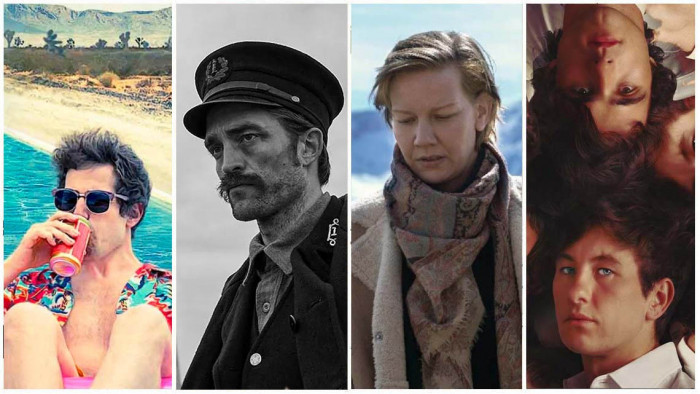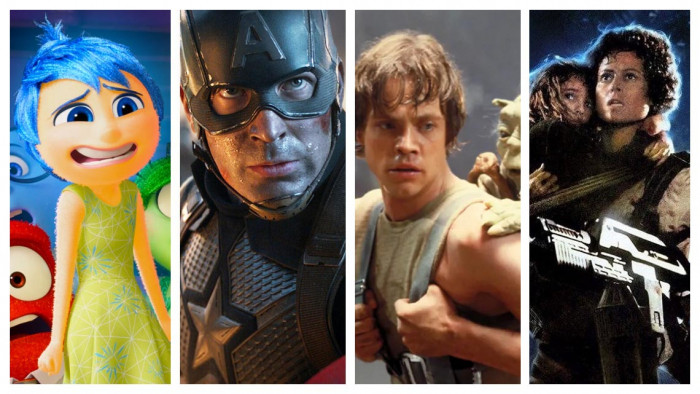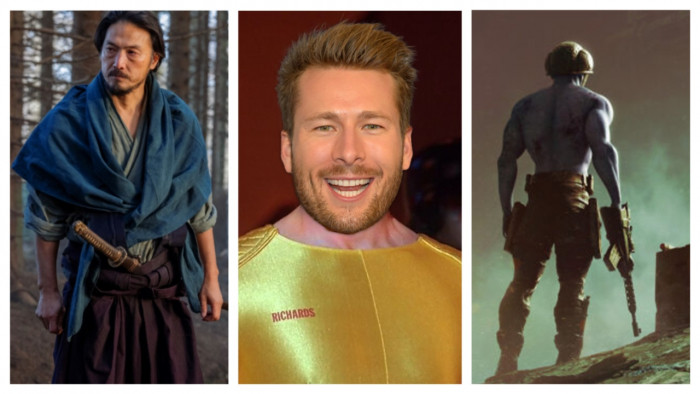Do you even need a girlfriend? (Or a boyfriend? Or a life-partner? Or, you know, anyone?)
Examining our obsession with settling down


Look outside. It’s pretty miserable out there right now.
If you’re already in a relationship, good for you - you’re happy with your cosy dinners, idle fumbles under Zara Home blankets, good stuff on the tele. You’re already counting the days until in-law inquisitions around the dinner table at Easter (whenever that is). And if you’re not, well… isn’t it time you were, young man?
We’ve all read the alarming statistics: according to a study in 2012, bachelors had a 24% higher risk of dying of cancer than married men and a 2011 investigation found married couples were 10 to 15% less likely to die prematurely. According to yet more studies, loneliness can be “as deadly as diabetes”. And research conducted by Ohio State University estimates that married men earn roughly double what single men earn - up to nearly four-times more when taking combined marital income into account. Health, wealth, and happiness: all fucked by a lack of love.
But what came first: the negatives or the pressure to find someone? Why have generations of young men and women, through school, movies, and every single interaction they’ve ever had with their families, gone through life believing that their main goal is to find The One and settle down?

Chinese medal-winner He Zi receives a marriage proposal from diver Qin Kai at the 2016 Olympic Games. (Image: Rex)
As with most things, our obsession with settling down starts with religion.
“Marriage is one of the sacraments given to us from God,” says Aiden, a trainee priest within the Church of England. “In the book of Genesis, God says to Adam, ‘It is not good for man to be alone’, and then he made Eve.”
So we’re getting married because The Big Bloke upstairs said we should?
“Stability is a key benefit, too. Marriage is what’s best for raising children,” says Aiden. “You’re making commitments to each other and to God, and those promises shouldn’t be entered into lightly. This is a gift given to us by God, and can really help people to understand why they’re here.”
But it’s not just the religious - with their myriad rules set down from mystical higher powers two millennia ago - that want us married. Social scientists - the logical and evidence-obsessed academics - are at it, too.
“Karl Marx and Friedrich Engels assumed that monogamy was a bourgeoise expression of Victorian repression,” says Dr Gillian Evans, lecturer in Social Anthropology at University of Manchester. “However, case studies don’t necessarily back up their views. Among the indigenous Hadza people in Tanzania, for example, one of the world’s last true hunter-gather groups, equality between the sexes and freedom among women is very high and it’s clear that men and women are actively choosing monogamous relations as the most effective way to raise children.”
Lots of things that are important to hunter-gatherers aren’t that important to us - few young British men leave school knowing the complicated system of whistles and clicks shared between Hadza men and Tanzanian honeyguide birds - and yet monogamy remains a shared constant. But whereas tribespeople in East Africa may have ended up with monogamy as a mechanism for survival, it’s arguable that men and women in the developed world have been led in their decision making by a far more insidious force: romantic comedies.

John Cusack in ‘Say Anything’ (Image: All Star)
Rom-coms are a deeply influential part of modern culture. To this day, date ideas are snaffled from Notting Hill and grand gestures are still seized from Say Anything - although holding a Bose Wireless Sound System the size of a KitKat above your head doesn’t have quite the same effect as hoisting a giant silver boombox.
“When I was going through a breakup, I was looking for pop-culture signifiers to make me feel better,” says Scott Neustadter, co-writer of seminal alt rom-com (500) Days of Summer. “The influence of rom-coms and pop culture in general, on both literal and subconscious levels, can be massive. Especially when you’re young and trying to figure out big questions like who you are, where you belong, and what makes you happy.”
Even science can back that up. Dr. Ronald Rogge, a psychology professor at the University of Rochester, found that making couples sit down together to watch five romantic movies and then talking about each for forty-five minutes was just as effective as regular therapy. It cut the rate of divorce in the first three years of marriage by more than half. Couples picked apart the arguments and issues seen on screen and then, what do you know, it seemed they took some of that knowledge to heart.
“You might not be able to get your husband into a couples group,” said Rogge. “But watching a movie together and having a discussion about it, that’s not so scary. It’s less pathologising and less stigmatising.”
“Choosing who you spend your life with is the single most important decision you’ll ever make,” says Mark Hammer, screenwriter of Miles Teller-starring rom-com Two Night Stand, speaking to us just a week before his own wedding. “And yet there’s no instruction manual on it. Romantic comedies fill that gap. For better or worse, they tell us what to look for, what to aspire towards, and what to run from…”

Joseph Gordon-Levitt and Zooey Deschanel in ’(500) Days Of Summer’ (Image: Rex)
In 1838, Charles Darwin drew up a list of pros and cons for marriage. For his extensive ‘Not Marry’ list, he noted “fatness and idleness” among many others (including, adorably, “perhaps quarrelling”) but he didn’t ignore the pros altogether. In his ‘Marry’ column, he listed “female chit-chat” and “someone to care for the house”. These things, he wrote, are good for one’s health, but a terrible loss of time. At the very least, he concluded, a wife would be “better than a dog, anyhow.”
But what was right for the possibly sociopathic godfather of evolutionary theory might not be right for you. The nuclear family isn’t the only way, and a significant number of people (although no national surveys have been carried out on the matter) see polyamory and open relationships as the answer.
“If I’m feeling drained and need some time to myself, the fact that we’re in an open relationship means she has someone she can talk to and hang out with,” says one guy in his mid-twenties that we spoke to, who has been in an open relationship for two years. “I think that was worth getting over the initial instinct to feel jealous.”
Ashley, 27, from Essex, has been in a number of open-relationships since his late teens. “Maybe it’s cliche, but as a gay guy, the freedom it affords me has been such a relief,” he says. “I don’t know that I could ever go back to a proper relationship.”
You can’t help but wonder how, in this culture of instant gratification, hook-up apps, and a supposed revolution in sexual politics, the idea of a ‘proper’ relationship still exists as standard. But being poly isn’t all dinner dates and sleeping around, there remain some lingering stigmas, especially for men.
Max, 25, a web developer from London, has been in an open relationship with his girlfriend for seven years. “It’s great, and it’s been this way from the start,” he says. “When were both students, we’d sleep with other people more often, but now we’re both 25 and living together, it doesn’t happen so much. She sleeps with someone else three or four times a year,” he says. “I haven’t slept with someone else for quite a long time but I’ll go on Tinder dates if I have nothing to do on a Wednesday evening and want to get out of the house, but really I’m just not that bothered.”
“But sometimes,” he adds, “it really is hard telling people about being in an open-relationship without them thinking you’re a dickhead.”
“It really is hard telling people about being in an open-relationship without them thinking you’re a dickhead.”
If the idea of a chocker calendar full of social and sexual plate-spinning is enough to give you a panic attack, maybe going the opposite route is more appealing. Voluntary singledom.
“Humans don’t need to get married to live a good life,” says social social scientist (and Harvard PhD) Bella DePaulo, author of the brilliant book Singled Out. At odds with what we’re always told by nosey mums, research shows loads of people who get married end up no happier or healthier than they were before. Many single people are actually even happier, says DePaulo - better connected to friends and family and gearing their life towards learning, change, and personal growth.
“I’m a single guy who doesn’t ever want to be in a relationship - ask me anything,” says James, 26, from Hackney. So, uh, why? “I’ve got commitment issues, I don’t like sharing my personal space, and to be honest, people just get on my tits.”
While James did come across as a little cold when speaking to us, his sentiment was still one that resonated. Pop-culture loves to present singletons as antisocial losers, desperate and unlucky - but what if you simply feel that the stresses and unwelcome obligations that come with having a significant other outweigh the benefits?
“When people get married, they often become more insular, even if they don’t have kids,” says DePaulo. “Many married people would agree that they gave up trying to make big improvements in their life a long time ago.”
A survey taken last year showed over twenty million people identified as single, which is weird since there’s comparatively little research on them. According to DePaulo, between 2000 and 2015 there were 19,582 academic studies on marriage and just 501 on being single. The chasm between what we know and what we think we know about the science of being alone is huge.
“If we just focus on the perils of loneliness we miss out on some of the profound rewards of solitude. People who are single at heart savor it,” says DePaulo. “They like to be the captains of their lives. They want final decisions to be theirs.”
So what of rom-coms? Should we be allowing Ryan Gosling, Jennifer Aniston, Richard Curtis, and the lads to have such a massive impact on our collective psyche? Have they led us astray?
“The rom-com really sold people on the power of the Grand Gesture, which is ultimately a terrible idea,” says the New Yorker and Broadly’s Monica Heisey. “A good relationship is made of hundreds of nice little gestures—bringing you coffee, not judging you for being hungover at brunch, knowing when you just want to get fingered and go to sleep—rather than showing up at someone’s house, uninvited, with a boombox and a bunch of freaky stalker signs you made.”
Inauthentic and often irrelevant, pop-culture always favours antics and a frankly lunatic sense of pursual over anything approaching reality. And for the sake of narrative tension, Hollywood really wants you to believe that people who really hate each other almost always end up madly in love eventually.
“When I watched all these movies growing up, I thought that’s what I should look for - a person I argued with,” says Kirsten “Kiwi” Smith, writer of 10 Things I Hate About You and Legally Blonde. “But in reality, arguing all the time doesn’t make for a very healthy relationship.”
Without a rom-com appearing in the highest grossing films of the year for most of the last decade, maybe audiences are finally fed up with movies that don’t look anything like the real life.
“Romantic comedies are about the Meet Cute, not the Coexist Ugly,” she adds. “Those movies end where most real life relationships begin.”
(Main Image: Getty)
Latest
Related Reviews and Shortlists


The 10 best war movies of the 21st century








